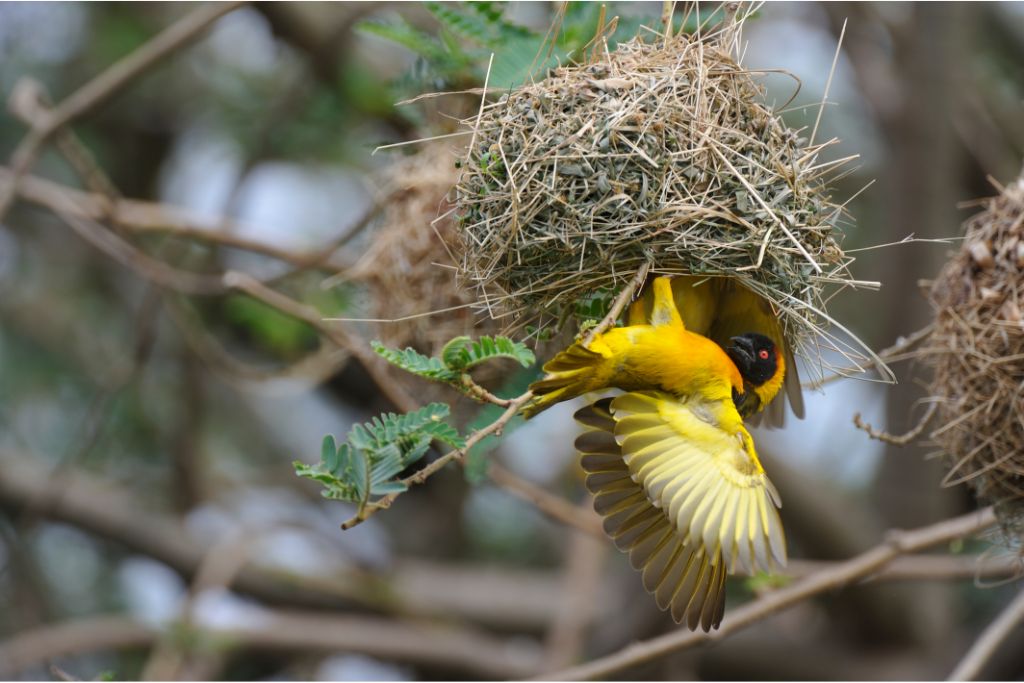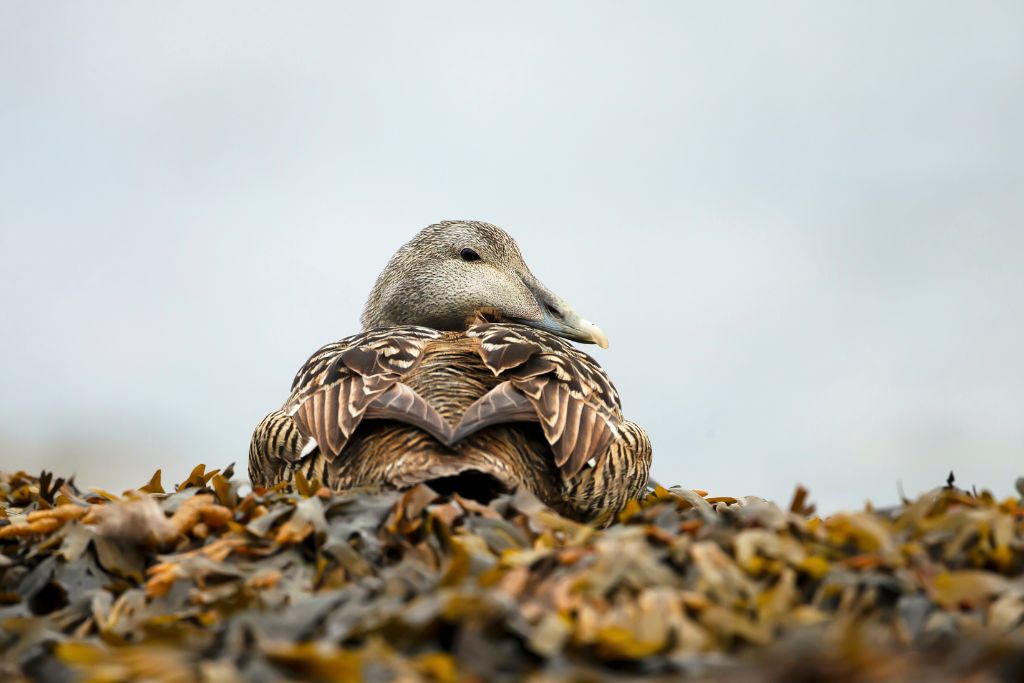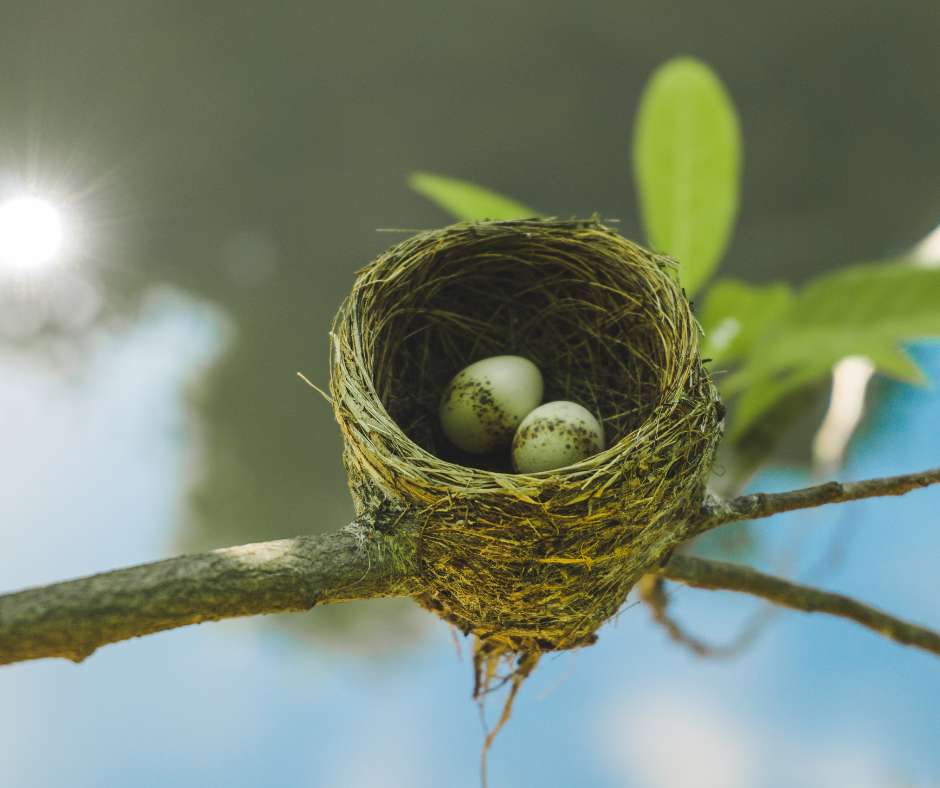Birds and their nests are a marvel of nature, but have you ever wondered, can birds move their eggs? Its an excellent question that takes us into the world of birds and how they take care of their eggs.
In this blog, well look at all kinds of bird nests. Youll learn about birds like ducks and plovers that move their eggs to safe places and about birds like robins and mourning doves that keep their eggs in one spot.
Well talk about why they do this, what can go wrong, and clear up some myths, too. Join us to learn about how birds look after their eggs!
Reasons Behind Egg Movement
For birds, eggs are the priceless beginnings of new life, and they frequently appear motionless in their nests. These eggs are occasionally moved for intriguing reasons. These are a few things that could cause eggs to move.
- Predator Protection: To keep their eggs safe from ravenous predators like squirrels, snakes, and other animals that might try to eat them, birds frequently relocate their eggs.
- Temperature Control: Eggs are like baby birds blankets. By moving them, parents are able to control the temperature, keeping the eggs cool in the summer and warm in the winter.
- Nest Maintenance: Sometimes, birds need to tidy up their nests. To maintain a clean and comfortable nest, they may move eggs to make repairs or remove old, broken shells.
- Changing Weather: Birds are bright. They may relocate their eggs to a safer location to protect them from severe winds and torrential rain if they anticipate bad weather, such as a large storm.
- Preventing Overcrowded Nests: When a bird’s nest becomes overly full of eggs, it may reorganize the eggs to make sure each one receives the same amount of care and warmth.
- Habitat Changes: Birds may relocate their eggs to a safer location to raise their young if their habitat is altered by construction or natural disasters.
- Fly Away from Intruders: Birds are aware of other interested birds or humans approaching their nest too closely. To keep their eggs safe, they relocate them to a hidden spot.
- Egg Rotation: Just as you might flip a pillow to make yourself more comfortable, birds will occasionally turn their eggs to make sure they develop properly on all sides.
- Ensuring Survival: By shifting their eggs, birds raise the likelihood that their tiny offspring will hatch, develop into robust adults, and one day take flight.
Birds are recognized for their fascinating and varied nest-related behaviors. Some nesting birds move their eggs and have unique habits. This section will discuss a few fascinating birds that are well-known for their unusual nesting practices.

Originating in Africa, the weaverbird is renowned for its extraordinary ability to weave nests. These little, vibrant birds are skilled builders who create elaborate nests out of grass, leaves, and other materials.
Weaverbirds gently pick up each egg with their beaks in order to transfer it. They do this gently to avoid damaging the fragile eggs. These birds’ firm hold on the eggs prevents them from dropping them while being transported.
Because their nests are made to dangle from the tips of tree branches, out of reach of predators, they are even more amazing. The weaverbird’s skillful construction and cunning nesting strategies protect their eggs from possible predators.

Cuckoos have evolved an amazing adaptation to make sure their eggs land in other bird species’ nests. The female cuckoo surveys its surroundings before waiting for the host bird to depart from the nest. She then quicklyoften in a matter of secondslays her egg in the host’s nest.
Cuckoos have evolved eggs that closely resemble the eggs of their host bird in order to pull off this trick. The foreign egg is usually so convincingly mimicked by the host parents that they are unable to tell it apart.

Large sea ducks that inhabit the northern regions of the world are called common eiders. These ducks typically nest on islands close to bodies of water. But whats really cool is how they protect their eggs!.
The mother duck takes an extremely wise action when a fox or large bird approaches their nest. She removes her eggs and places them somewhere more secure. She sometimes places them next to another bird’s nest to ensure the safety of the young inside the eggs.
Because of their amazing skills and adaptations, birds and their eggs have always captivated us. It’s important to dispel some myths and misconceptions regarding the movement of bird eggs. Explore these misconceptions and provide clear evidence to debunk them.
Understanding Bird Nesting Habits
When it comes to building nests for their young, birds are expert constructors. Every species makes these comfortable homes in a different way. While some, like eagles, construct enormous nests high up in trees, others, like penguins, don’t use nests and instead store their eggs on their feet for warmth!
The materials available to them, the location of their nests, and the threats to their eggs determine how birds construct their nests. Every nest, whether it’s a straightforward scrape on the ground or a complex web of twigs and leaves, serves as a unique haven for birds to tend to their eggs and, eventually, their young.
The diversity of nesting behaviors demonstrates how resourceful and adaptive birds are in providing for their families.

Eggs Hatch When They Roll
Another widespread misperception is that eggs begin to hatch as soon as they roll within the nest. In reality, egg movement does not determine when they hatch. By perching on the eggs, the mother bird maintains their warmth, and the heat from her body promotes the development of the chicks inside the eggs. Rolling eggs dont affect hatching time.
FAQ
Can a mother bird move her eggs?
Would a robin move her eggs?
Will a bird come back to a disturbed nest with eggs?
Can mourning doves move their eggs?